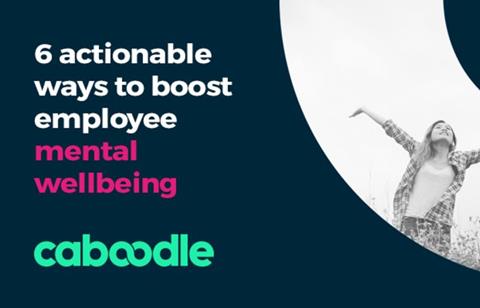
The Coronavirus pandemic has taken its toll on the mental wellbeing of many across the world. A study by mental health charity Mind found that over half of adults and over two thirds of young people reported that their mental health had become worse during the lockdown period in the middle of 2020.
There are many other statistics as well as real life stories indicating a real challenging time when it comes to mental health.
Employee mental wellbeing is no doubt at the top of the list of priorities for businesses as they look to battle the effects of the Coronavrius pandemic.
With this in mind, here are a few ways to boost employee mental wellbeing!
Mindfulness and meditation apps
Mindfulness apps are a great, free and easy way to look after your mental wellbeing. Whatever your goals, whether it be to reduce stress or get better sleep, there’s a mental wellbeing app out there for you.
Pick out your favourites and recommend them to your employees. Apps like Headspace continue to be incredibly popular and more and more apps are popping up all the time.
You could even look to subsidise the cost of paid subscriptions for mindfulness apps for your staff as an employee benefit, just as companies like Google and LinkedIn do for their staff.
Staff can benefit from the use of mindfulness apps whenever they like and they can even help their friends and family too.
Help employees manage their finances
In a year where UK GDP dropped by a record 20.4%, many face financial difficulties.
Even for those who are currently financially stable, their long-term financial stability will no doubt be a huge priority.
Financial worries can have a significant impact on mental health which can ultimately lead to a cycle of even poorer mental health, leading to poorer decision making when it comes to spending, contributing further to deteriorating mental health.
Therefore, when it comes to tackling mental health at work, financial worries should be one of the first areas you consider.
Good mental health is built on the foundation of financial stability and security among other things. Without this, it can be very difficult for someone to truly improve their mental wellbeing.
Take a look at our blog on how to help employees manage their finances for more.
Introduce and promote an Employee Assistance Programme (EAP)
The EAP is now more important than ever for employees and more popular than ever with employers.
With the mental health challenges many face during the Coronavirus pandemic, it may be difficult for those struggling with their mental health to find help with higher waiting times for mental health support due to increased demand.
The EAP provides 24/7, completely confidential support to help staff with a number of mental health challenges. Having a support channel available round the clock is crucial for staff where support from elsewhere may be difficult to find.
Nominate a mental health champion
Many charities will provide support and mental health training for your staff either virtually or in person if its safe to do so.
There’s lots of training options out there and there’s also funding options available for small companies, so there’s something to suit all budgets.
One of the key challenges when it comes to improving mental health is encouraging people to seek help and talk about the issues they’re experiencing. Having a mental health first aider at work can provide a vital support channel and is an immediate option for someone suffering from mental health problems.
Helping train staff in mental health first aid is great for employees themselves in learning a new skill but it also demonstrates a commitment to improving mental health in the workplace and shows staff that they have a line of support from their company should they need it.
Home workouts
Exercise is key to improving mental wellbeing and is often recommended by professionals as a way to combat anxiety and depression.
Nominate someone in the company to take workouts Joe-Wicks-style over a video call with your team!
You could make it a weekly thing or even more often if you like. It also has that added social interaction too which is great for mental wellbeing.
Social virtual get-togethers
These are key for mental wellbeing. There’s been a huge shift when it comes to remote working which could leave some staff feeling isolated.
The classic ‘watercooler chats’ for many are suddenly no more and it’s important that this type of interaction is replaced in some way.
So, while it may seem counter-productive to take time out of the working day for virtual get-togethers that are non-work related, in the long run it will actually have a more positive effect on productivity as well as the mental wellbeing of your staff.
Give this type of call a name and encourage your teams to have them regularly!











